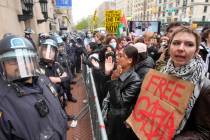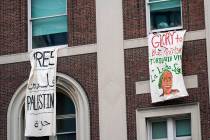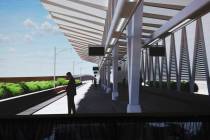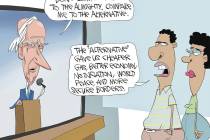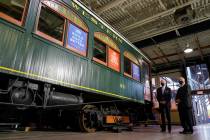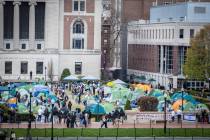Seeking sunshine
One of the measures of a Nevada legislative session is whether lawmakers made government more open or more secretive. In the 2009 session, although they missed some opportunities, legislators generally advanced the cause of open government.
For one, they restored your right to free speech -- even if you never realized it had been taken away.
Assembly Bill 496, approved by both houses of the Legislature and signed by Gov. Jim Gibbons, revises the process of disciplining judges. It gets rid of a law that said you couldn't tell anyone if you filed a complaint with the Judicial Discipline Commission against a judge.
Another bill approved during the session, Senate Bill 267, sponsored by Sen. Valerie Wiener, D-Las Vegas, places workshops and public hearings, conducted by state agencies, under Nevada's open meeting law.
At first glance, it would seem obvious that public hearings would be open -- and they are. Here's what happened, though:
A reporter received notice of an upcoming workshop. When he showed up, however, he realized the agenda listed the wrong location. By the time he found the correct location, the meeting already had been going on for a half-hour or so. He complained to the attorney general's office, which determined that the workshop wasn't covered by the open meeting law.
In this instance, it was a simple mistake on the agenda. But you can see how somebody with bad intentions could manipulate such a meeting to make sure the opposition didn't show up.
Sometimes, it's what legislators don't do that helps keep government open. For example, they didn't pass SB32, which would have closed the evaluations of city and county managers.
The arguments for the bill went something like this: City councils and county commissioners may feel more comfortable being frank in a personnel evaluation of their top managers if they can do it in private. Also, people carrying a grudge can get nasty when allowed to air their criticism in public.
I can't really disagree with either of those observations. Still, these are public officials whose biggest decision in any given year is probably whether to keep or fire the manager -- and why. That people may be uncomfortable, or rude, isn't enough to keep the discussion behind closed doors. In my mind, it's all the more reason to do it in public.
Legislators also didn't move public notices, such as assessor rolls and city financial reports, exclusively to government Web sites. The Internet is a handy supplement, but you shouldn't have to go hunting through government-run sites to find public notices.
AB99 was a bill that, while I understood the intent behind it, presented a dilemma. It would have allowed judges to create "fictitious" addresses for themselves on some public documents so they couldn't be stalked by people wanting to do them harm. I hate the thought of people using public documents to help stalk a judge. But I could never reconcile the idea of judges, who demand the whole truth and nothing but the truth, being able to propagate a legal falsehood. The bill was passed in the Assembly but never came to a vote in the Senate.
As for missed opportunities, the Legislature had at least three.
One was AB50, introduced by the State Contractors Board, which would have allowed the public to see complaints filed against contractors. It died in committee.
A second opportunity was a bill by Assemblyman Joe Hogan, D-Las Vegas, to make campaign finance reports more timely and easier to read. It was a good idea and, unfortunately, went nowhere.
The other chance for the Legislature was to hold more of its discussions of controversial tax plans in public. Although there were formal opportunities for debate and public comment, we know that much of the wheeling and dealing among legislators went on behind closed doors.
Reporters would stand outside the meetings of the "core group" and ask what happened that day. What the public missed, however, was the back-and-forth exchanges among our key elected officials over the biggest issues of the session.
It's kind of like being asked to wear a blindfold while someone else drives you across town during rush hour. "Trust me," they say. "We'll get there."
"Maybe so," you reply, "but I'd feel a whole lot better if I could see for myself."
The Legislature can hold closed-door meetings because it exempted itself years ago from the open meeting law. The excuse is that in the hustle and bustle of a legislative session, it's just not practical to give three days' notice and an agenda in advance of meetings.
Those are valid reasons ... for carving out a few specific exceptions for the Legislature. But they are not excuses for going against the spirit of the law, which says the public's business must be conducted in public.
The 2009 Legislature made a few significant strides forward on open government, and no steps backward.
On some issues that gave lawmakers chances to make progress, though, they left us still limping along.
Barry Smith is executive director of the Nevada Press Association. He writes from Carson City.








